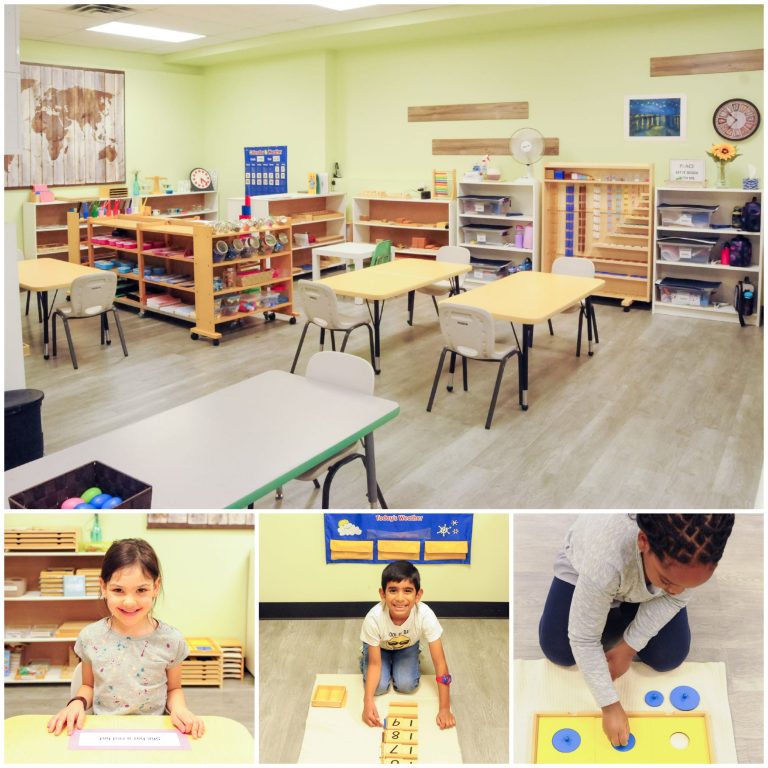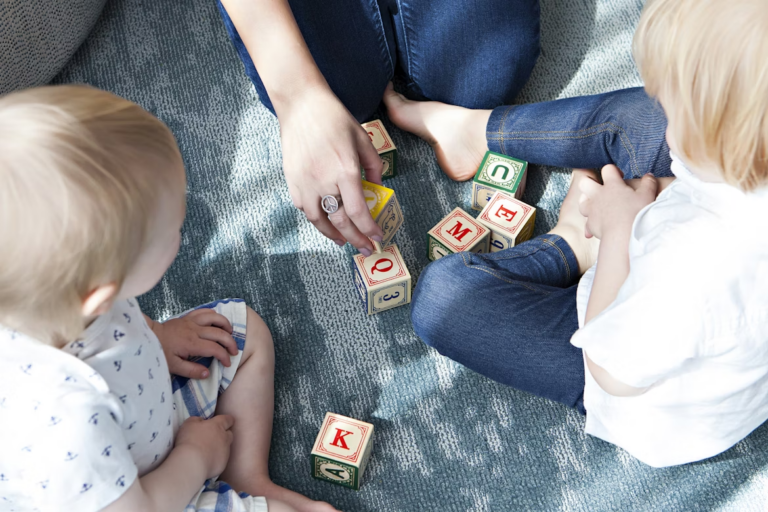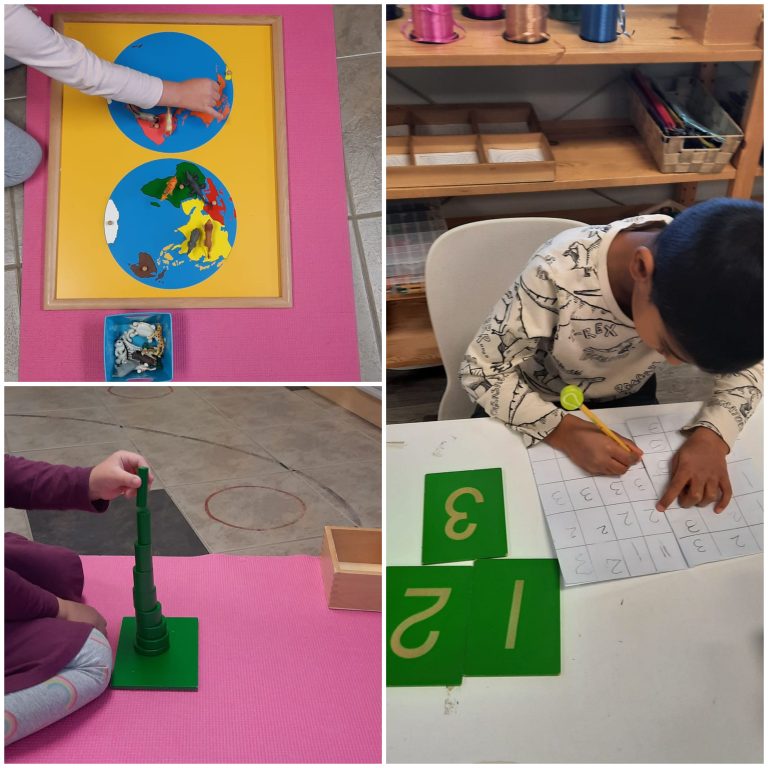What Is Descriptive Praise? How to Use It in the Montessori Classroom
“Great job!” It’s a common form of praise that many parents might use when talking to their children. As a Montessori teacher, it’s a form of praise you want to keep to a minimum. Instead, in their training, Montessori teachers learn to use descriptive praise. This type of praise brings many benefits to children. From helping them build their character to developing positive work habits, descriptive praise is a powerful tool.
What exactly is descriptive praise and why is it important? Discover what makes descriptive praise different from other praise and how can you use it in the Montessori classroom.
What is Descriptive Praise?
Descriptive praise is a type of praise that describes. An example is, “You’re concentrating hard!” This praise describes the action or process. Another one might be, “You used so many bright colors in that drawing!” This type of praise describes the work. In each case, the description offers the child input about their attitude or about their choices. It helps them think about how their decisions influence outcomes.
Descriptive Praise vs. Evaluative Praise
Another way to understand descriptive praise is by comparing it to evaluative praise. How are they different?
Evaluative praise provides a judgment or evaluation. One example is, “Good job!” or “Good boy!” Some other examples might be, “Your picture is beautiful!”, “You did great!” or, “You’re smart!”
The difference is subtle between the types of praise. With evaluative praise, the child finds out whether or not they did something right. With descriptive praise, there’s more room for a variety of focuses. For example, if you’re using descriptive praise to talk about a child’s painting, you might focus on the child’s attitude, workmanship, the colors used, and more:
- “I noticed how carefully you painted!”
- “There are so many different textures!”
- “I love how you blended the colors there.”
And on and on.
However, if you use evaluative praise, there is an overall judgment of the painting. Generally, evaluative praise determines whether something is “good.” The underlying sentiment then is that if it wasn’t good or great, it might be “bad.”
Why Use Descriptive Praise in the Montessori Classroom?
In your online Montessori training program, you might learn about using descriptive praise in the classroom. Why? Descriptive praise offers many benefits for children.
Most importantly, descriptive praise fits in perfectly with the Montessori philosophy. Descriptive praise offers a positive way for adults to respectfully interact with children about their work. It also provides many opportunities for learning and development of character. It’s the perfect type of praise to use in the Montessori classroom.

Benefits of Descriptive Praise for Children
When adults like parents and Montessori teachers use descriptive praise, it brings many benefits to children. Here are just a few:
Building Intrinsic Motivation
Intrinsic motivation is doing something because you enjoy doing it or see the benefit of doing it. For example, a child might practice reading because they’re motivated to learn to read. In your online Montessori training, your trainers may compare this to extrinsic motivation. A child who is extrinsically motivated might only practice reading to get a sticker to put on a chart.
Descriptive praise builds intrinsic motivation. How? Often, descriptive praise points out the benefits of a child’s efforts. For example, after cleaning up a spill, a Montessori teacher might say, “Thank you for cleaning. Now, the floor is safe for everyone to walk on.” Over time, this type of descriptive praise helps children learn the benefits of their actions. That builds intrinsic motivation. Instead of waiting for outside rewards, children appreciate the benefits of their hard work. They do work and choose behaviors for the joy that it brings them.
Evaluative praise can also act similarly to extrinsic motivation. When children look to adults for approval and ask “Do you like my work?” they want to know if they’ve done a good job or not. Instead of evaluating their own work, they want the stamp of approval from the teacher. In Montessori schools, children often check their own work. That also helps build intrinsic motivation. When children check their own work, they feel satisfaction when they’ve done a good job.
Children who want the teacher to check their work don’t feel the same satisfaction. Their goal is to get that “good job!” from the teacher. For this reason, descriptive praise is a better tool. It helps build intrinsic motivation and build joy for learning.
Improving Self-Esteem
It may seem like evaluative praise would provide more self-esteem than descriptive praise. However, that’s not true! When children hear evaluative praise, they get their self-worth from an adult. They learn to wait for their teacher or parent to decide whether they or what they’ve done is “good” or not.
Studies have also shown that children with low self-esteem are harmed by evaluative praise and over-the-top praise. Why? When children receive evaluative praise like “You’re smart!” or “You’re a good kid!” it might contradict their very real experiences. When the same child then struggles with their homework, they might think the adult who told them they are smart was lying to them. That type of praise starts to feel insincere to children.
Descriptive praise helps children create a realistic idea of what they’re capable of achieving. When Montessori teachers say things like, “I noticed you concentrating for a long time to finish that work,” children feel proud of their hard work. This type of praise feels more genuine to children because they know that they did work hard. Recognition of this hard work helps build the child’s self-esteem from within.
Encourage a Growth Mindset
Descriptive praise can also help children adopt a growth mindset. This mindset is the idea that you can learn new things. Fortunately, this mindset can be taught. Part of teaching a growth mindset is showing children that hard work pays off. Also, children need to try challenging tasks and fail before mastering them.
With descriptive praise, Montessori teachers can praise a child’s hard work, effort, concentration, and determination. All of these characteristics are what children need in order to build a growth mindset.
Descriptive praise helps children build confidence in their ability to do hard things. With encouragement, children can work through difficult tasks and succeed. This helps them build their growth mindset and self-esteem at the same time!
Building Vocabulary
Descriptive praise can be creative and use rich vocabulary. When children hear new words, they’ll pick them up. Don’t be afraid to use big, complex words like “determination” and “perseverance”. You can use these words alongside synonyms to help build understanding. Soon, children will understand these words and begin to use them.
The descriptive praise you use with children will also become their inner voice. Children will soon begin saying to themselves “I persevered on that!” and “I didn’t give up!” This can in turn have a positive impact on their mental health.

When to Use Descriptive Praise in the Montessori Classroom
As you acquire the characteristics of a Montessori teacher, using descriptive praise in the Montessori classroom will come naturally. Here are some tips to keep in mind:
- Avoid interrupting: When children are working, it’s best to let them work. However, many children look to adults for approval or want to share their work with you. When this happens, it’s a great time to use descriptive praise!
- Use descriptive praise to redirect: Descriptive praise can help redirect children. For example, if a child needs help choosing work, you might remind the child of an activity they’ve enjoyed or done well with before. You might say, “Remember how you carefully lined up the beads yesterday? I wonder if you can do it just as carefully today.”
- Use descriptive praise with a group: In small group lessons, you can also use descriptive praise. For example, you might praise the group for cooperating with one another, working hard, being helpful to each other, and more.
Descriptive praise is an excellent tool that all Montessori teachers can learn to use. Once you feel comfortable, you’ll find that there are many opportunities for using descriptive praise. Each small interaction with a student provides the chance to slip in descriptive praise. As long as it’s sincere and relevant, it can be a valuable tool for helping children build self-esteem, a growth mindset, and develop intrinsic motivation.
Learning About Descriptive Praise in Your Online Montessori Training
During your online Montessori training, you’ll learn about many topics including descriptive praise. Through online Montessori training, you’ll learn the steps for giving descriptive praise in greater detail. Plus, you’ll gain practice giving descriptive praise when interacting with other future teachers and your trainer through online meetings. If your online Montessori training includes a hybrid element, you may even get the chance to work with children and use descriptive praise in a Montessori classroom!
As one of your many Montessori teacher tools, descriptive praise will help you connect with students, build their intrinsic motivation, and so much more.







